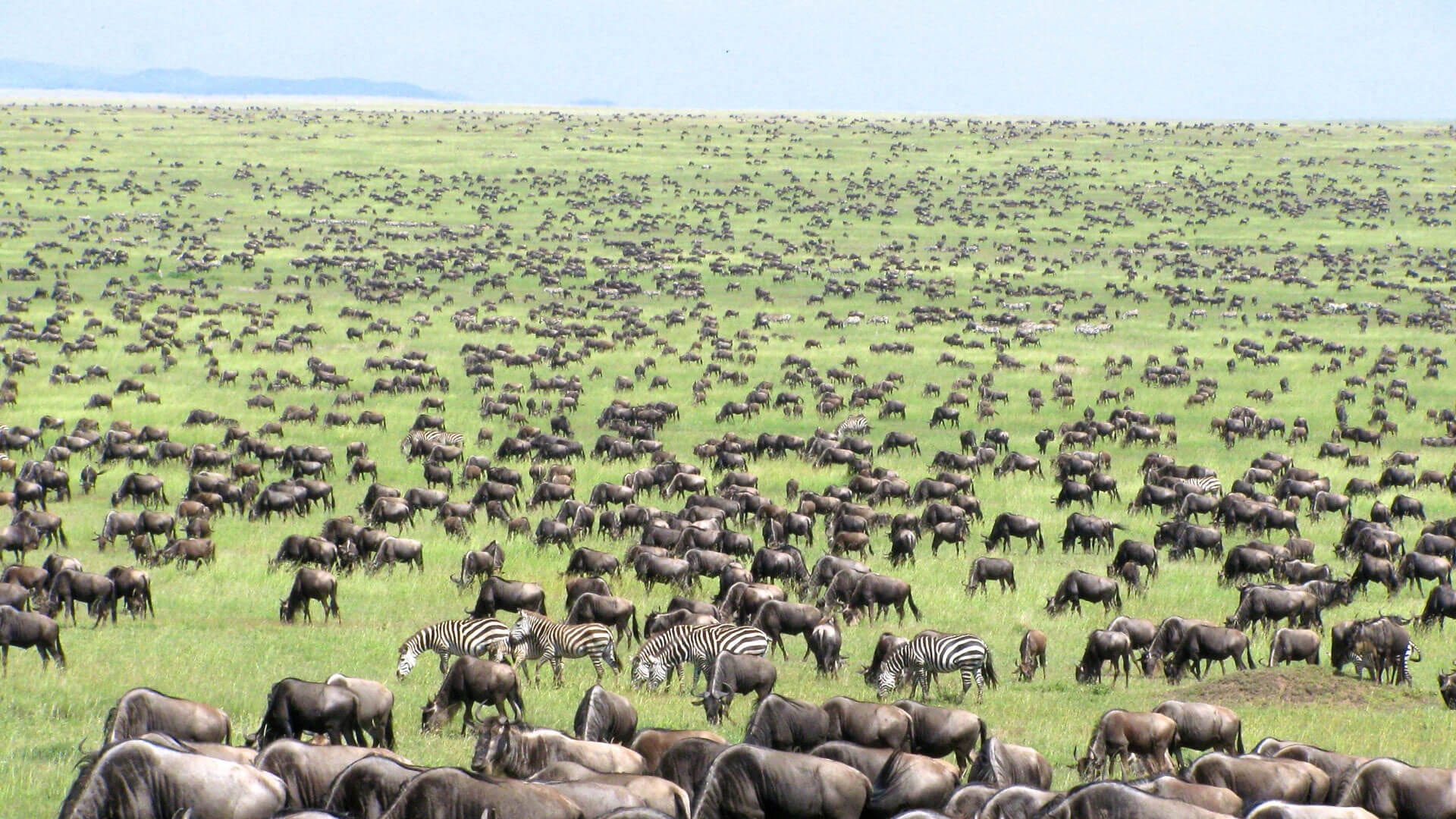Great Migration of Serengeti

Great Migration of wildebeest and other herbivorous like zebra and Thomson gazelle is the wonder in the natural world.
Over a million wildebeest migrate for about 800km annual from the Southern plains of Serengeti National Park to Maasai Mara in the North in search of food and water.
As they move from place to place their timing from one year to another may be of slightly different as the route tend to meander as local condition influence grass growth i.e they may move earlier this year from the grass plain of the south and have a longer stay in the North next year.
But normally this is the annual movements
Seasonal movement of the wildebeest herds
January to March
All the vast herd of wildebeest herd give birth of the next generation of wildebeest, usually over a period of three weeks in the month between January and March, when optimum grazing is available on the short grass plains around Ndutu where predators are waiting, so these young wildebeests must be ready to run within minutes of birth if they want to survive the Migration. At the end of March as the last birth is given the first movement of wildebeest will start to central Serengeti
April to June
Typically, the wildebeest head north-west from the short grass plains to the Grumeti River in late April. This river is their first real obstacle and crocodiles are waiting eagerly. From Grumeti, in June or July the herds move north, often spilling over into the Klein's Camp Concession, before moving north into the Maasai Mara.
July to November; River Crossing
Danger came to the migration as they enter Kenya they must cross the Mara River with huge losses to the waiting crocodiles along the shores. The surviving wildebeest then rest on the Mara grasslands until October or November.
October and November
The herds gather together again to start their journey to the Southern plain of Serengeti through the eastern part of Serengeti. As the time they arrive at their natural breeding ground of Ndutu it’s green and lush hence the cycle begins again
We offer a number of safari options into the Serengeti. If you’re interested in seeing the Migration let us know when. Our adventure experts would like to help you time your trip and choose the safari package that will give you the best shot of catching the Migration.
